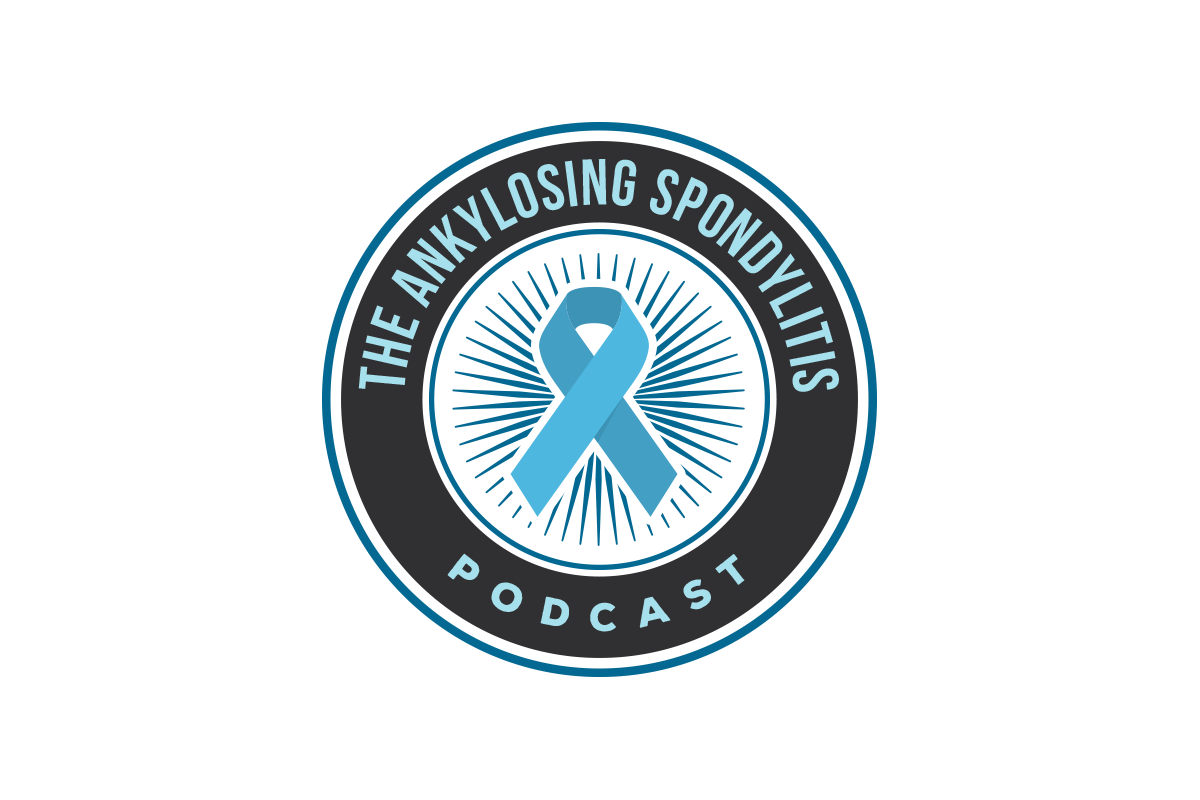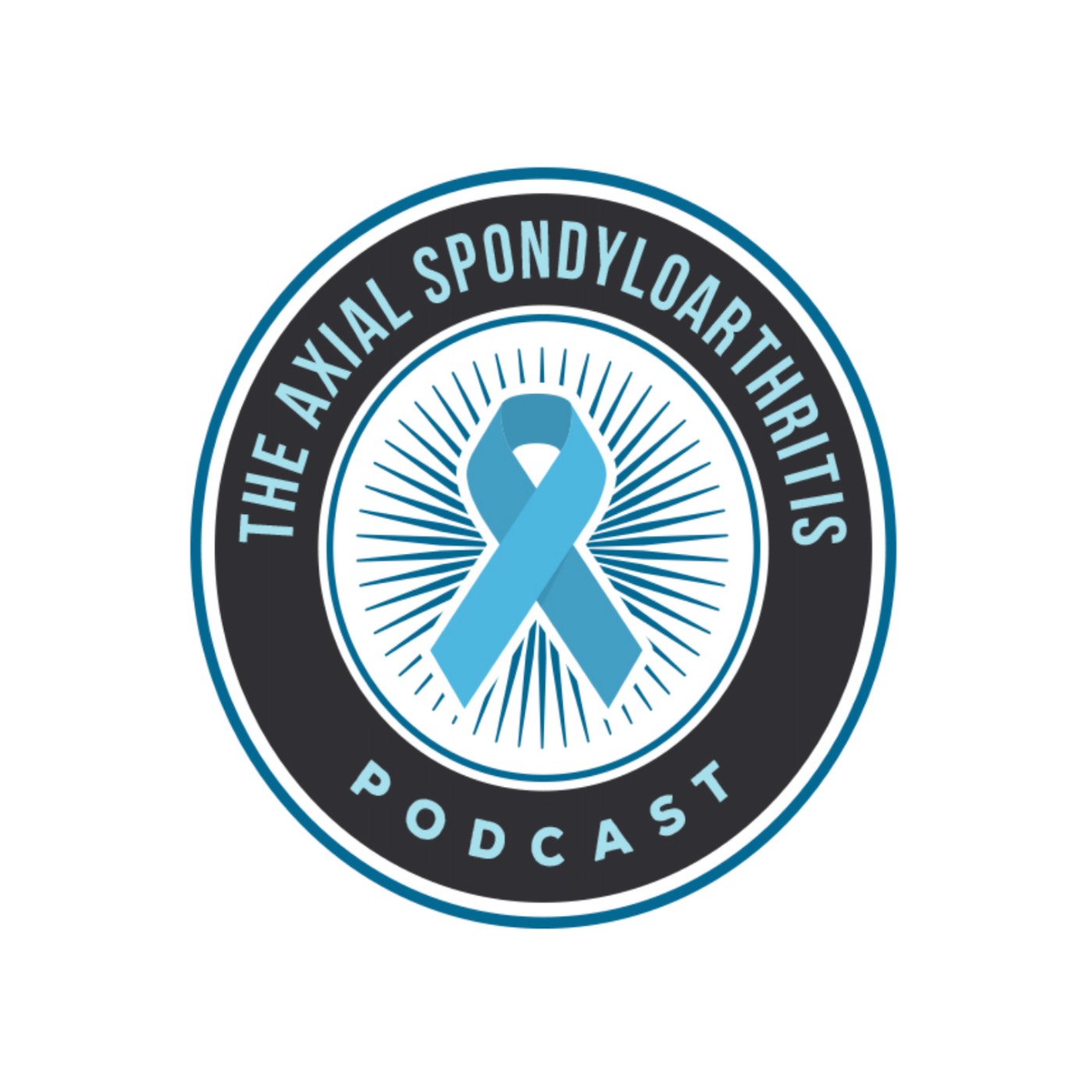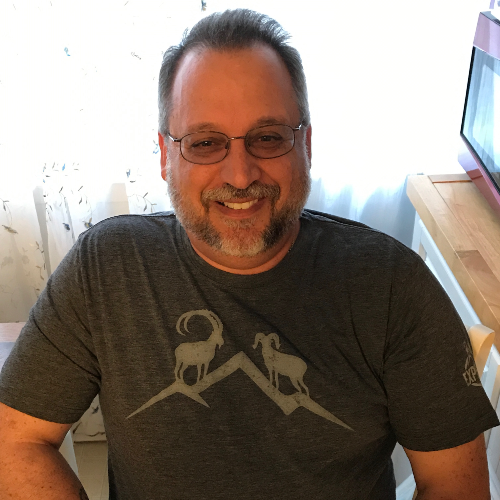Episode 1
The Ankylosing Spondylitis Podcast - Introduction
This is the first episode of The Ankylosing Spondylitis Podcast. It is just a short overview of what is to come.
Hello, and welcome to the inaugural episode of Voices of AS, as many will know this as stands for Ankylosing Spondylitis. This is a disease I've had for over 35 plus years,
I'm 48, soon to be 49 and was diagnosed at 14. So it's something I've dealt with for a long time and doing this podcast has really been something in the back of my mind.
I wasn't sure how I wanted to structure it, what I wanted to structure it about. So in this episode, I want to kind of lay down what I want to do with everybody or for everybody and you may hear a little bit of wandering, so I apologize as I kind of collect my thoughts. I'm doing this really just off the top of my head just talking to everybody. I want to be completely honest and brutally honest for some people that are new to the disease.
There's a lot of information floating around out there and the one thing about Ankylosing Spondylitis is nobody reacts the same way to the disease. What bothers me might not bother you. I see people make comments and some of the Facebook threads that says, “do this and you'll feel great.” Well, you know, that's great that it worked for you, but it might not work for everybody else. So I always want to temper or temper this stuff to say that what I'm doing here is what works for me.
Now I'm going to in the future interview other AS patients, you know, people that have Ankylosing Spondylitis and we're going to hear what they do and what works for them.
Again, we're not doctors seek out you know, the best rheumatologist you can best medical doctor you can and you have them diagnose what works best for you. It could be biologics, it could be aspirin, it could be something as complete as a hip replacement. It's what is your journey with AS, our journeys are just to try and provide some connectivity. So You know, idea that there's others out there that are dealing with this. And as a community, we should step up, be there to support each other. When I was diagnosed at 14, there was no other person that I knew that had Ankylosing Spondylitis. There was no Internet. I couldn't just go on and Google it and, and figure out Oh, this is what I'm dealing with. This is what I could expect. I had no idea. The doctor put me on some meds and away I went to live my life, going down to yearly to check in with my rheumatologist and unfortunately, my version of AS was one that progressed very, very quickly through my teens and 20s, so miserable times for me. By the time I was 31, I'd been through four hip replacements. Many of you are coming into this in the 30s in the 40s. And you're starting the process where there's fusing going on that I already had happen. So We all sit in different spots. But that doesn't mean we can't support each other and be there.
So, you know, many of us sit there and go, well what is AS, what is Ankylosing Spondylitis? So I pulled up the Spondylitis Association of America and I just want to kind of go through their definition of what Ankylosing Spondylitis is where the overview of it as many know Ankylosing Spondylitis, or AS, a form of arthritis that primarily affects the spine, all the other joints can become involved. It causes inflammation of the spinal joints that can lead to severe chronic pain and discomfort. In more advanced cases, it's inflammation can lead to AnkyJosis which is new bone formation in the spine, causing sections of the spine to fuse in a fixed immobile position. AS can also cause inflammation, pain and stiffness and other areas of the body, such as the shoulders, hips, ribs, heels, small joints, the hands and feet. Sometimes the eyes can become involved. This is known as iritis and rarely the last item is your heart can be affected.
The hallmark feature of Ankylosing Spondylitis is the involvement of the sacred illiac joints during the progression of the disease. The SI joints are located at the base of the spine with a spine joins the pelvis. So, that sounds fun, doesn't it? As I've always said ankylosing spondylitis is the gift that keeps on giving. Once I was diagnosed, mine progressed very quickly through my SI joints and my hips. My back didn't fuse until my later 20s, but my hips were brutalized at a young age. I had my first hip replacement when I was 21 years old. That was my left hip. I've gone on to have two more replacements done on the left. The right hip was done when I was 23.
You know, it was a great process. It took away most of the pain. Unfortunately also in my 20s I was in an unhappy marriage and I didn't seek out the medical treatment I should have, I just kind of went through it and took aspirin and, you know, maybe had a beer here and there to try and dull the pain. Very, very wrong way to deal with it.
So fast forward to about oh 1996 or so I moved to Phoenix, Arizona from Michigan. I met my first person besides myself that had AS and he was a jeweler in Scottsdale, Arizona. He was in his 80s, and like me, he had developed as when he was quite young, and had worked with this disease for 65 - 70 plus years.
An amazing guy to talk to, it was the first time I could talk to somebody and say, I had this pain and they knew what I was talking about. It wasn't an issue of being told, oh, you're lazy. You just don't want to do something. You know, you look fine. That's I think something that we all deal with is we're told, hey, you look fine. What are you talking about? But nobody can understand that grinding deep down in mobilizing pain, when you have this bone almost on bone type moving in the fusion, and it's just, it's a pain that's beyond description.
Really only another person with AS can understand it, no different than how a man really can understand what childbirth is like. Two women, though, talk about it can completely that they've had kids identify with the other.
So anyway, that's what AS is, and kind of my case. Fast forward to being, you know, 48 years old with the disease. Now, I walk with a cane due to due to a complication from my last hip replacement, which caused neuropathy and my left leg so I draw have a drop flood.
As I said, AS is the gift that keeps on giving and I don't say this stuff for sympathy for me, I just say that these are the symptoms that I've encountered and I want to be, like I said, just honest and upfront, and when we bring others on, we'll find out what's affected them and what they're how they're dealing with AS.
I've developed some other minor items, sleep apnea, high blood pressure, most of that is due unfortunately to a sedentary lifestyle. Because I'm on a cane, it's not like I'm going to go run marathon or do anything overtly, or I should say, you know, really out there for exercise.
I've tried different things, but due to the fusion and my back and the fake hips. Many types of cardio exercise just don't work. So I'm hoping this summer when I have access to Lake Huron again, I'd like to try kayaking. I've looked at a couple of kayaks sit up high and hoping that that alleviate some of that back stress and allows me to get a good cardio workout in so but that's for a whole other episode we'll tackle that at a later time.
With this podcast, what I'm hoping to do is be a resource for people, not the resource, just a resource for you guys to listen to, to understand there's somebody that knows what you're going through and then I want to discuss topics related to diet. I know that's a big thing and creates a lot of controversy. But let's bring out some folks that are professional or I'll bring out some folks that are professional nutritionists and we'll talk about diet and what things might affect you better than others. And then you can take that information, talk to your doctor as to whether you should implement it or not.
Let's talk about the thing that affects many others and me is dating with AS and how do you explain it to somebody how, you know, let's get a counselor in here, talk about it. If you're married, I'm going to try to have counselors on that talk about things, working out issues with partners. Because, you know, as you start to fuse different things, whether it be sexual positions or household chores, just may not be doable or take you much longer to do something verse, what your spouse can do it at and how they hopefully cannot get aggravated with the slower pace that you might move at.
So there are all sorts of different areas I want to go I want to interview other as folks, the title of this, Voices of AS came from Cookie. If anybody is not on Faces of AS on Facebook, I encourage you to look it up. Cookie has done an amazing thing and she started off wanting to log I think in people with AS, and gosh, I can't even tell you how many she's got in there now, but we've lost some of them. Cookie knew them better than myself. But there's been some really, really good people over the years since Cookie’s been doing this that we've lost, that have passed away. And I can say it was great to read some of their stuff. I didn't know them as well as some of the others did. But it was great to read their stuff and see their perspective.
I've gotten to meet some folks that have AS, and that has been just an absolute treat for me to get more familiar with people in a setting other than just a computer like this. So if you have support groups in your area, or you have somebody that lives relatively close, contact them, get together and have lunch, get together at each other's house, if you can't afford to go out and do lunch, and just have that connection with somebody else. Even if its just picking up a phone.
Another thing I'd like to do on this is Ankylosing Spondylitis can in some cases lead to your desire to or your need to put in for disability. Maybe we can get some folks on to talk about the disability process. I for one am disabled, it took place this year 2018. And I did the whole Social Security process myself SSDI and was approved on the first go around, but that doesn't mean you will be. You've got to have a lot of information there. So maybe we'll have some folks on to talk about that and what you can expect and how it works. And really, that's the rest of this show. I want your guys’ help to put it together. How do we put it together? What information do you want to hear about who should I contact? I'd like to have somebody from the spondylitis Association of America to talk about as juvenile spawn to arthritis. You know, all of the different items. You know, again, different people that are dealing with it, whether you be in Canada, whether you be in England, whether it be in Australia, you know, Germany, wherever, if we can get on the podcast, I want to interview you and talk with your you about your progress through this disease.
So thank you very much. I really appreciate it. The time that you took to listen to this, I know it's short. It's not going to be anything intrusive or very long, at least this episode.
So if you like that song at the beginning as well, that is a band from back in the late 80s called The Toll and their songs will longer are fantastic. And I thank Greg Bertram for allowing me, to use their music So anyway, I really thank you for your time. Look forward to this in the future and watch for the future episodes coming out. Thanks and have a great day.


